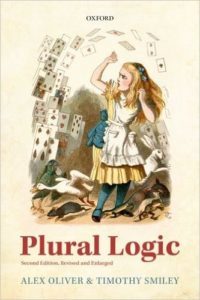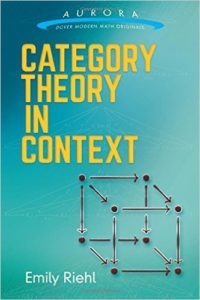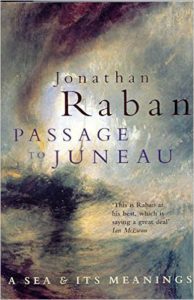Peter Smith's Blog, page 85
December 18, 2016
Another postcard from Florence
 Some wonderful sunny days. Flights to Pisa and hotels in Florence both have enough spaces in December to risk last minute bookings when you’ve seen the weather forecast — but that’s not our way: so this has been sheer good luck. So we took advantage of the blue skies to “do” the Roman site at Fiesole — which perhaps in itself isn’t very exciting, but which does have a very attractively presented small archeological museum which is certainly worth the bus-trip up from Florence.
Some wonderful sunny days. Flights to Pisa and hotels in Florence both have enough spaces in December to risk last minute bookings when you’ve seen the weather forecast — but that’s not our way: so this has been sheer good luck. So we took advantage of the blue skies to “do” the Roman site at Fiesole — which perhaps in itself isn’t very exciting, but which does have a very attractively presented small archeological museum which is certainly worth the bus-trip up from Florence.
However, it’s not been all galleries, churches and sites. A certain amount of rather terrific food and drink has been consumed (for mid-culture sustenance, there is Eataly: and after a tough day we can recommend again Olio e Convivium, and Il Santo Bevitore, and a new discovery Il Desco). None will break the bank. And it is a tad depressing that a place as rich and cosmopolitan as Cambridge hasn’t anywhere to touch them.
But no, I shouldn’t say that’s “depressing” even in jest. What’s depressing is the evolving ghastly political news from America. And the continuing profoundly damaging mess that Brexit looks certain to be, thoughts of which are bound to nag away as you wander the side streets of old Europe.
December 15, 2016
Postcard from Florence
 Back to Florence for five days. Lovely in the winter sun. It perhaps seems a little busier than this time last year, but of course still nothing like the dire crowds of summer. One high point has been seeing the restructured Botticelli rooms in the Uffizi which were opened in mid October. The improvement on the familiar Room 10-14 is simply stunning. The old large square room has been partially divided, to make more wall space. So now the Birth of Venus and Primavera are both beautifully isolated and quite wonderfully well lit too. They can never have looked better.
Back to Florence for five days. Lovely in the winter sun. It perhaps seems a little busier than this time last year, but of course still nothing like the dire crowds of summer. One high point has been seeing the restructured Botticelli rooms in the Uffizi which were opened in mid October. The improvement on the familiar Room 10-14 is simply stunning. The old large square room has been partially divided, to make more wall space. So now the Birth of Venus and Primavera are both beautifully isolated and quite wonderfully well lit too. They can never have looked better.
Here though is a painting from the Uffizi that we’d never noticed before, the Madonna of the Well (c. 1510). Not Raphael as you might think at a first glance, but one Francesco Cristofano Guidicis, known as Franciabigio. Lovely though.
December 14, 2016
IFL2 news
I have just heard that CUP are definitely going to offer me a contract for a shiny new edition of my Introduction to Formal Logic.
If the press had never mentioned the idea, I would have probably never taken a hard look at the book again (since I’m no longer teaching from it, and haven’t done for six years) and so I would not have fretted about it. But once the seed was sown of the idea of a new edition, I of course found myself re-reading the book with a critical eye. Not very happy with what I found! And so then, of course, I did indeed want to try to do a better job. Hence I’m very relieved and pleased that I will get the chance.
December 10, 2016
The material conditional — analysis or replacement?
Here’s a couple of chapters, just 22 pages, hot off the laptop, from a bit later in the draft second edition of my Intro to Formal Logic:
Ch 15: The material conditional. Ch 16 More on conditionals
This isn’t the whole of the story about conditionals planned in the book. These chapters will have Exercises, and there will some more about biconditionals there, as well as more illustrations of the oddities of identifying ordinary conditionals with material conditionals. Then a few chapters later we will encounter the very natural standard Natural Deduction rules for the conditional, which (against a classical background) give us the material conditional again — so we’ll have occasion to say more about how the material conditional keeps forcing itself on us. But these two are going to be the core chapters, replacing the current Chs 14 and 15.
Everyone has firm views about conditionals, and so no one is going to agree with these chapters! No doubt, that includes my future self. But I’m at the stage where I want to put the chapters in a e-drawer for a while, and return to them fresher in a few weeks. So in the meantime, I’d love to get comments and suggestions — either by email to ps218 at cam dot ac dot uk, or via the comments form below (though new users may have to wait a day or two to get comments approved). Thanks!
December 7, 2016
Generating truth-tables in LaTeX
I have just added to the “Logicians’ miscellany” page of LaTeX for Logicians a new heading “Help for generating truth-tables”. There is now a link there to a Truth Table Generator webpage by Michael Rieppel. This page contains a JavaScript program which will generate a truth table given one or more well formed formulas of sentential logic, and provide you with LaTeX source for the table.
Thanks to Sara Uckelman for the pointer to this. Any other recommendations for similar or even better resources?
December 6, 2016
Unsatisfying satisficing
There’s no getting away from it. You know perfectly well you can’t try to optimize a book — that way madness lies (or at least, never finishing). You know perfectly well you have to satisfice. But that is oh so unsatisfying. When I had to finish books for work reasons, I gritted my teeth and let stuff go. Now I’m retired, it’s more difficult not to keep on keeping on editing and (hopefully) improving. I need a contract settled for the second edition of IFL to concentrate the mind. But CUP’s wheels are grinding slowly (fingers crossed that that isn’t a bad sign).
Anyway, for anyone interested, here’s a tolerably polished draft of the first ten chapters of the second edition. Comments as always most welcome — and many thanks to those who have already given me some very useful feedback. And if you want to skip the pre-formal preamble made up of Chapters 1 to 6, and start commenting from Chapter 7 when the formal work gets under way, that would be perfectly welcome. (I’ll send more chapters to anyone who comments on at least some of these first ten.)
December 1, 2016
Plural Logic, again
 A second, paperback, edition of Plural Logic by Alex Oliver and Timothy Smiley is now out from OUP. As the cover says, it is ‘Revised and Enlarged’ – in fact it is almost fifty pages longer, with some new sections and a whole new chapter on Higher-Level Plural Logic. So you should certainly make sure that your library gets a copy.
A second, paperback, edition of Plural Logic by Alex Oliver and Timothy Smiley is now out from OUP. As the cover says, it is ‘Revised and Enlarged’ – in fact it is almost fifty pages longer, with some new sections and a whole new chapter on Higher-Level Plural Logic. So you should certainly make sure that your library gets a copy.
I did read and comment on a version of the original edition pre-publication. But that was not at a good time for me, and I remember much less detail than I should: so I really want now to re-read the book. One reasons is that, in reworking my Introduction to Formal Logic, I want to excise unnecessary set talk, e.g. when giving the semantics of QL. So I want to remind myself how Oliver and Smiley handle this. And there is also a tenuous potential connection too between thinking about plurals and another interest, my on-the-back-burner introductory discussion of category theory. For I need to think through how far we can get in elementary category theory by conceiving of categories plurally rather than as set-like, thereby avoiding certain problems of ‘size’ hitting us too soon.
November 17, 2016
Category Theory in Context
 Congratulations to sometime Cambridge student Emily Riehl, now at Johns Hopkins. Her very illuminating lecture notes, aimed at beginners in category theory (albeit mathematically perhaps rather sophisticated beginners) have become a book, Category Theory in Context, published in a new series of ‘Modern Math Originals’ by Dover Books. This is available now in the US, and at the end of the year in the UK.
Congratulations to sometime Cambridge student Emily Riehl, now at Johns Hopkins. Her very illuminating lecture notes, aimed at beginners in category theory (albeit mathematically perhaps rather sophisticated beginners) have become a book, Category Theory in Context, published in a new series of ‘Modern Math Originals’ by Dover Books. This is available now in the US, and at the end of the year in the UK.
There has been a link to Emily Riehl’s evolving notes on the category theory page here for a couple of years, and the publishers have kindly allowed her to continue to host a free PDF copy of the book. So you can take a look already if you don’t know her work — but at this low price, it will be really nice to have a paper copy (and of course, tell your library).
November 16, 2016
Postcard from Paris

Raphael, La belle jardinière, 1507
The Louvre
So, as it happened, we left for Paris on the day of the Presidential Election, and woke up in our hotel to the grim news the next morning. At least, being away from home, with so much else to distract us, we haven’t been glued to the television, internet, and newspapers as we might have been. But the result is, assuredly, a catastrophe.
Depressed by all that, we have found ourselves repeatedly seeking out balm for the soul, especially in the Louvre and the Musée d’Orsay. Here’s just one painting that I find particularly affecting. (Almost no one stops to look at it as the crowds push past into the adjoining room with the Mona Lisa — yet wouldn’t you rather live with the Raphael, if you could?)
Paris has been rainy and cold — thank heavens for the wonderful Metro! — but still as beautiful as ever.
November 3, 2016
Life’s choppier waters
 My non-logical readings are rather random, except for one pretty firm rule — I try to alternate between reading something new (or at least, new to me), and re-reading something familiar (or at least something that would be familiar, if only my memory for novels and the like wasn’t so terrible). Otherwise, there is no method to it. When I finish one book, I just hunt around the house for something that seems to fit my mood and inclination to read next. So just recently, I’ve read Sarah Perry’s much praised The Essex Serpent (which I rather enjoyed, but thought lost its way towards the end), Giuseppe Tomasi di Lampedusa’s The Leopard (which I must have read at least twice before, and which I enjoyed even more this time) and Ian McEwan’s The Children Act (which will go straight back to the Oxfam shop where I picked it up a few weeks ago — a quite unconvincing waste of McEwan’s considerable literary firepower). And I am now re-reading what is surely the best work by one of the best English prose writers of the late 2oth century, namely Jonathan Raban’s remarkable Passage to Juneau. This is proving, if possible, even better than I remember; I am absolutely gripped again.
My non-logical readings are rather random, except for one pretty firm rule — I try to alternate between reading something new (or at least, new to me), and re-reading something familiar (or at least something that would be familiar, if only my memory for novels and the like wasn’t so terrible). Otherwise, there is no method to it. When I finish one book, I just hunt around the house for something that seems to fit my mood and inclination to read next. So just recently, I’ve read Sarah Perry’s much praised The Essex Serpent (which I rather enjoyed, but thought lost its way towards the end), Giuseppe Tomasi di Lampedusa’s The Leopard (which I must have read at least twice before, and which I enjoyed even more this time) and Ian McEwan’s The Children Act (which will go straight back to the Oxfam shop where I picked it up a few weeks ago — a quite unconvincing waste of McEwan’s considerable literary firepower). And I am now re-reading what is surely the best work by one of the best English prose writers of the late 2oth century, namely Jonathan Raban’s remarkable Passage to Juneau. This is proving, if possible, even better than I remember; I am absolutely gripped again.
For those who don’t know Raban’s work, let me link to this sensitive short essay from the Guardian, whose title I have stolen, which says something about why it is so fine, and which might well (I hope) encourage a few others to read the book.



